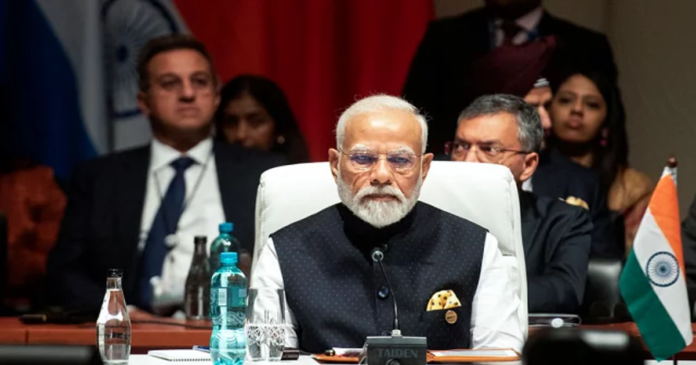Narendra Modi, the prime minister of India, said on Thursday that the G20 meeting, which he will be presiding over this weekend, must encourage more funding and technology exchange to help developing countries combat climate change.
Modi calls climate finance: In the midst of fatal heatwaves and record-breaking temperatures around the world, climate experts and activists have warned of severe consequences for developing countries if leaders are unable to reach an agreement.
Narendra Modi has promoted India as the leader of the “Global South” and as a bridge between developed and developing nations.
Modi wrote in an editorial published in multiple Indian outlets as well as foreign dailies, including those in Britain and Japan, “Many countries of the Global South are at various stages of development, and climate action must be a complementary pursuit.”
Globally, wealthier countries fell short of their commitment to give poorer countries $100 billion annually in climate funding by 2020, undermining confidence that polluters will assist impoverished nations most at fault for global warming in addressing the issues of climate change.
This weekend, the Group of 20—which includes 19 nations plus the European Union and accounts for nearly 85% of the world’s GDP and an equal percentage of its carbon emissions—will gather in New Delhi.
Modi continued, “We must match ambitions for climate action with actions on climate finance and technology transfer.”
“To combat climate change, we believe there is a need to shift from a purely restrictive attitude of what should not be done to a more constructive attitude focusing on what we can do.”
“G20 Energy Ministers’ Conference Fails to Produce Fossil Fuel Reduction Plan Amid Global Climate Debate”
A July G20 energy ministers’ conference fell short of producing a plan to gradually reduce the use of fossil fuels or even mentioning coal, the polluting fuel that continues to be a major source of energy for developing nations like India and China.
Although the two Asian countries are among the top polluters on the planet, they contend that past Western polluters ought to have a considerably greater share of the blame for the current global climate problem.
A move away from fossil fuels would hurt their economies, so nations like Saudi Arabia and Russia have opposed the G20’s desire for an energy and climate consensus.
Modi continued, “Boosting climate-smart agriculture” was one option, noting “due to the impact of climate change, ensuring food and nutritional security will be crucial.”
He remarked, “Technology is transformative, but we also need to make it inclusive.”
However, The COP28 talks in the oil-rich United Arab Emirates beginning in November will be the culmination of a jam-packed schedule of meetings essential for action on global warming. The G20 summit on September 9–10 is the next significant round of negotiations in this calendar.

